
Interdisciplinary Studies is as unique as the students who seek us out! Our students venture across traditional disciplinary boundaries to bring into scholarly conversation fields of study and modes of analysis in ways not typically encouraged in other MA programs.

Adam Thomas White
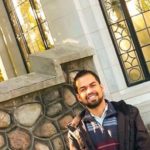
My major is in Computer Engineering, as well as professional certificates in Humanism, International Cooperation and Social Circus.
I am a bilingual (Spanish/English) highly passionate interdisciplinarian activist. I have over seven years of experience with social projects’ implementation, volunteer management, fundraising and indigenous advocacy. I am interested in the relation between technology and Indigenous peoples around the world.

I argue that the natural and built environments are the anchor that is specific to a particular location’s culture and geographical site. Both the postcard’s travel (over land and sea, and over a period of time) and the individual’s longing for a space and place are born from an estrangement from one’s familiar place. The familiar place in question in this proposed research project is the Greater City of Sudbury (Sudbury) and the northern Ontario Francophone culture linked to its landscape.
An interesting fact about myself would be the fact that my life can be described as VERY interdisciplinary. I am an artist and also a bodybuilder and sponsored athlete. From fine arts to kinaesthetic and academia I am active in very different disciplines. A member from my committee board told me to continue to push my various skills equally; she knows my strengths and points out my weaknesses. If I was in any other program I would be able to simply highlight my strengths and dismiss the rest but as an interdisciplinary student I must strive for a higher level in all aspects of all my chosen disciplines. She said ‘Put as much passion and power into your thesis as you do into sculpting your body and your art work and it will be exceptional’. Her words inspire me and remind me that an interdisciplinary program is where I can excel.
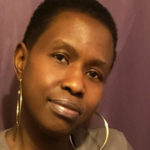
Amma Ofori is an Educator in an elementary school board. She has a passion for teaching S.T.E.A.M. education to her students. She received awards for teaching arts to children in the community. Her path is to continue working in the tech and education fields and inspire students in S.T.E.M. education, which is why she decided to pursue a master’s in Interdisciplinary studies regarding education, technology and sociology. Her research is on Occasional Teachers and 21-century learning. She is investigating the impact that Occasional Teachers have on becoming agents of change in the school system.

Combining a passion for creative content development and an understanding nature, I can effectively customize marketing initiatives to reach the target audience and obtain desired results. Transferring my skills to an artistic platform, I can develop the content into relevant stories that would both entertain and inform the audience.
I work with communities to increase awareness about human trafficking in Canada and improve the lives of survivors of trauma.

My research is exploring addiction in the Punjabi Diaspora and my inquiry will include the development of a Smart App to assist in the prevention of relapse.
I am the founder and CEO of Punjabi Community Health Services in Peel Region.
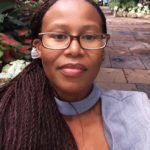
Catherine Mutune is a second-year Masters student in the Interdisciplinary Program. Her Masters SSHRC funded research project investigates the lived experiences of recent East African immigrant women who came to Canada under the Federal Skilled Worker Program (FSWK) and the challenges they encounter socially, economically, and politically.
She enrolled in the Interdisciplinary Program because of its unique nature that interrogates, accommodates, and blends different disciplines and integrates them into her study. She takes a multidisciplinary approach that encompasses Human Rights and Equity Studies, Women, Political economy, and Sociology. She is the founder of Women in Investment, a business organization that has brought together East African Women in Toronto intending to invest in real estate. The organization also supports other recent East African women by creating a social network and a cultural community.

Chidinma Umahi Nwankwo is a first year Master of Arts Candidate, Interdisciplinary studies. Her M.A Thesis, investigates Sexual Violence and Gender Inequality: An Appraisal of the Protection of the Rights of Women for a Peaceful and Inclusive Society in Africa. This work intends to examine sexual violence suffered by women in peace and conflict situations across Africa to ensure the protection of the rights of women using Nigeria as a focus. Her research interest includes: International human rights, Immigration and refugee law, International security law, Gender and Women’s studies.

Chyrish Dupie

Debbie graduated from OCADU with a Bachelor of Design. After graduating, she volunteered with the intercultural program Canada World Youth where she worked in Nova Scotia and Indonesia on community building initiatives. Later, as an associate with the Canadian International Development Agency, she provided web development assistance to an Non Governmental Organization in Botswana.
This experience overseas contributed to her interest in her research topic of understanding the production of transnational communities by exploring them through a visual lens. She is specifically looking at the area of Little Jamaica in Toronto, along Eglinton Avenue West. The three disciplines of her thesis include Geography, Design, and Sociology, supervised by Glen Norcliffe, Angela Norwood, and Andil Gosine, respectively.

Gillian von Langsdorff

Haily MacDonald
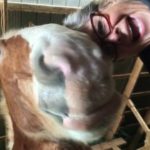
For three decades Hana Gartner travelled the country and the world on behalf of the CBC, delving into the hearts and minds of people from every walk of life, telling their stories.
She questioned everyone from Prime Ministers to contract killers; investigated everything from polygamy to airport security. Most meaningful to her was the story of 19 year old Ashley Smith who died on a concrete floor in solitary confinement, as federal prison guards stood outside her cell and watched. Throughout her decades long career, Gartner’s goal was to confront the corrupt and the inept, and to explore and expose that which makes us human and inhumane.

Heather Oerlemans
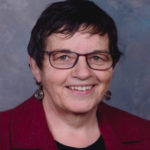
I joined the Interdisciplinary Studies Program in order to consider resistance to colonialism in the culture of St. Vincent and the Grenadines through the lens of Caribbean Studies, Religious Studies and Literature. Since the era of plantation slavery the hegemony of the planter elite has been challenged, as evidenced by the narrative of Ashton Warner which details why and how he refused to accept the status of slave. During the second half of the twentieth century Shake Keane challenged respectability and the respected in his poetry. In this century Nigel Thomas’ exploration of queer identity in the Vincentian context in the novel Spirits in the Dark continues this resistance by finding, in African inspired religious experiences, an antidote to colonial expectations of hetro normativity. These voices from St. Vincent speak to all of the creole experience of making a way out of what appears to be no way.

An analysis of an LGBTTQQIAAP performance event entitled Pi*llOry, wherein queer performers infiltrate different non-traditional spaces and performatively embody trauma will largely guide my research. The exploration into and development of queer cultural values, beliefs and political identity is fundamental in my investigations of personal and communal trauma. Literature reviews of relevant queer affect theory and the consideration of queer trauma themes within selected performances present at Pi*llOry are used to expose the events’ failures and successes in the disruption of trauma through embodiment and the creation a space where queer healing can begin to occur.

Jason Bissanthe

Johanna is currently working towards a Masters in Interdisciplinary Studies at York University. Her SSHRC-funded thesis research focuses on unpacking her personal and familial involvements in various colonial projects in order to expose wider complicities and challenge the erasure of ongoing colonial violence. Her areas of interest include queer theory, affect and relationality, colonial history and historiography, decolonizing frameworks, intersectional feminism, autoethnography, and more. She comes to her Master’s after undergraduate studies in Global Health and Women and Gender Studies at UofT, work as a research coordinator doing community-based research with women living with HIV, and years of involvement in various activist and community projects. Johanna is also the busy parent of a feisty toddler.

Julia Bennett

The central intent of my research is to clarify a concept of the “abstract”, particularly as it relates to the “material” and the “ineffable” in terms of corporeal experience, through critical discussion of the respective working methodologies of choreographers Rob List and Deborah Hay. My research was originally motivated by training with and witnessing the work of Rob List, a choreographer who attempts to radically deny abstraction in his practice, which led me to inquire after what exactly abstraction is. My three fields of study— phenomenology, psychoanalytic theory, and philosophies of religion— all describe mediating functions, enabling us to regard the unknown and the ineffable. By learning more about how ideas from these three areas conceive of the abstract in relation to the material and the ineffable, and by allowing their overlaps and contradictions to be informed by and to inform my understanding of these movement practices, I want to better understand dance as a form of sensorial intelligence, and how movement can be influenced by ideology.
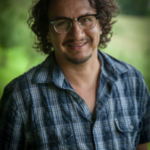
My thesis focuses on Extreme Monster Imagery and the Cognition of Empire in Pre-Modern Europe.
Since graduating from Ontario College of Art (Honours, 1991) Kaspar has been active as an independent artist, film and videomaker, visual storyteller, curator and researcher. He has directed 10 documentary and animated films which were produced with a total of 19 arts council grants at federal, provincial and municipal levels, and has received over 500 screenings on television and at festivals, gallery exhibits and grassroots events internationally. For the past 20 years Kaspar has also been continually researching and developing an large archive of knowledge about the histories of monsters and mythical creatures. With his archive, he has lectured, given conference papers, developed a museum course and consulted with theatre projects in an ongoing series of interdisciplinary multiplatform artistic and theoretical projects. At York University Kaspar is completing a visual project about extreme monster depictions in Pre-Modern Europe focusing on Cognition, Classification, Social and Colonial histories, Early Sciences and Indigenous Theory.

Description of Research Inquiry: Can a supplementary treatment based on bibliotherapy assist adolescent girls who engage in non-suicidal self-injury (NSSI) to develop a healthier sense of self? Some professionals who work with youth who engage in NSSI say that the majority of their clients have not been diagnosed with an underlying personality or mood disorder, and that they appear to be experiencing an existential crisis. Can a supplementary therapy that uses story to help teens explore their deeper questions about who they are and what meaning life holds for them help to reduce NSSI behaviour?
Most of my work has been as an editor and writer, including on staff at magazines, as a freelancer, and as a communications specialist with corporate clients. Prior to writing and editing, I worked for non-governmental organizations, including Amnesty International in Ottawa and Greenpeace. I have a degree in Radio and Television Arts from Ryerson and a BA from York in English.

My research is on how the Experiential Narratives of Patients with Dementia Inform our Understanding of Healthcare Institutions.
Jr. Fellow, Interdisciplinarian, strategist and researcher, professional in several design mediums such as wayfinding, human factors and brand strategy. Contributed to education and social advancements for the promotion of accessibility within the built environment through the American Disabilities Act (ADA) and Accessibility for Ontarians with Disabilities Act (AODA).
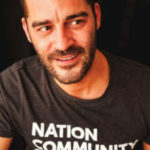
In nêhiyawak (Plains Cree) communities I’m called Northern Thunderbird, but my English name is Lance Morrison. I am a member of the Bear Clan, and the child of Red Butterfly Woman. I am a Plains Cree and Métis student at York University, completing a Masters’ in Interdisciplinary Studies, before continuing to a PhD in Indigenous Studies. I am a storyteller, student, researcher, academic, writer, truth-teller, dog lover, and recent graduate of York University’s Indigenous Studies program, for which I earned the Governor General’s Academic Medal. Interdisciplinary Studies allows me to bring together multiple ways of thinking into my research, which mirrors Indigenous ways of knowing and seeing. The incorporation of multiple ideas and talents is central to Indigneous cosmology and I’m proud to be able to use traditional knowledge in an academic setting.

I am a Registered Interior Designer and for the past ten years, I have focused on the design of healthcare facilities with a special interest in paediatrics. I completed an honours degree in Fine Arts & Psychology as a foundation, and then returned to study interior design before beginning my career as a designer. The experience I gained in practice over the past 15 years made me more aware of the impact each design decision has on those who occupy the spaces we design. This deepened my interest in learning about human behaviour in response to art and the design of interior spaces, so I began an Interdisciplinary Studies thesis-based Master’s program. My work focuses on the integration of art/environmental graphics in healthcare spaces using image and text to convey a message with the goal of positively affecting human behaviour and ultimately leading to better health outcomes for patients and families.

My thesis explores the extent to which factors such as spatial dimensions, culture, and classroom practices contribute to gender inequality in the Ghanaian education system. I explore the interaction of these factors and examine the roles they play in undermining gender equity in Ghanaian schools.
Background in International Development Studies & Human Rights and Equity Studies. I am a human rights activist.

Lina Deker

Loferne Cuffy

Lucie began her postsecondary education at Concordia University, in the vibrant and boundary-pushing Fine Art department. In an effort to more deeply explore the feminist politics influencing her creative work, she added Women’s Studies as a second major in the second year of her degree. Lucie transferred to York University for her final two years, where she graduated Cum Laude with a BA Honours in Gender, Sexuality and Women’s Studies. She is also a member of the prestigious Golden Key International Honour Society for students in the top 15% of their departments.
Lucie has returned to York University for her MA in Interdisciplinary Studies. Her Masters Thesis explores themes of feminist resistance, embodiment, physical autonomy, trauma-recovery/healing, and body art through her exploration of women’s tattooing as a tool for healing among survivors of sexual assault. As a survivor of sexual assault and an avid tattoo enthusiast, Lucie’s research will be autoethnographic in nature. Lucie will present a written thesis, as well as a photography exhibit showcasing large-scale photographs of the tattoos of her research participants.
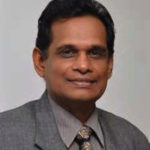
I have a business, marketing and legal educational background. I have worked as business manager, lawyer and a social activist in Sri Lanka. Chronic Kidney Disease Unknown Etiology ( CKDu) in Sri Lanka is taking poor farmers lives since late 1990s. Since there are confusing claims as to causal factors and no concerted plan of action to manage the issue, it has become a major socio- economic problem. As such, I have taken much interest in finding an integrated solution to contain, mange and prevent the spread of this deadly disease. I am looking at the problem in an environmental, socio-economic, corporate social responsibility lenses to develop a lasting solution and implement it through the government of Sri Lanka. I look forward very much to establish connections with network of professionals in various fields of study who are interested in finding solutions to this type of multi faceted problems.

I am an English, history, French, and social science teacher with the Dufferin-Peel Catholic District School Board in the GTA. I am also one of the 12 women selected for the City of Toronto’s inaugural Women4Climate Mentorship Programme.
I chose to pursue a Master’s in Interdisciplinary Studies because I enjoy tackling projects and problems from a variety of disciplinary approaches. For my thesis, I am investigating three Canadian women journalists who were dispatched alone on foreign assignments between 1890-1940, as well as the writing they produced from their travels.

Being an Interdisciplinary Studies master’s student had taught and allowed me to adopt an interdisciplinary lens and be able to integrate different methodological and epistemological approaches used by different disciplines (Repko, 2012). I am undertaking research in examining Canadian public policies in the repatriation and integration of ISIS’s (Islamic State of Iraq and Syria) recruited and exploited children. My thesis study seeks to explain and analyze the position of the Canadian government with regards to repatriation, and reviews existing policies concerning returning children with the goal of providing a safe life to ISIS’s children by repatriating them to Canada from ‘Al-Hol refugee camp’ in Syria. The multidimensional nature of the issues that I examine shows how my research is fundamentally interdisciplinary. In particular, I have been able to integrate approaches and perspectives from Refugee studies, Socio-legal Studies, and Development Studies to contribute to my own unique approach in the research.

My Master’s thesis, in short, is a project that is an attempt to contextualize and explore the resent murders of unarmed black men in the United States. This project will look at individual cases of racially motivated murders by both law enforcement and vigilante citizens. The case study will be both the anchor of the research and the window that will allow us to see the evolutionary model of violence perpetrated against African Americans, from slavery to mass incarceration. My ultimate hope is that this project will aid in our understanding of these cases, and treat them as dangerous symptoms of institutional racism, which has deep roots in settler colonialism, and the institution of slavery. Our interdisciplinary program enriches this research because we are granted opportunity to develop an eclectic viewpoint and access resources which a research like this demands. Moreover the program offers us the chance to look beyond any parochial focus, and develop ideas and arguments that are not bound to any traditional discipline.

Michael Mulrooney

A second-year MA candidate in interdisciplinary Studies at York University and is currently a research assistant for the Engaging Girls, Changing Communities (EGCC). Her academic interests are Community development with particular focus in Women Empowerment. She is the co-founder and managing director of Gashanti UNITY and her research is centered on negotiating spaces for Somali women in Toronto through her work with Gashanti UNITY. Her motivation stems from the lack of research about first generation Somali Canadian youth, despite the fact that they experience significant barriers integrating into mainstream Canadian society. Muna has moved fluidly from fields including social work to mental health, community development to community programming, and artistic management to artistic production. She has acted as a facilitator between the multiple generations that make up the Somali community, trying to build bridges through her multi-media work. Muna has been active in the global Somali diaspora, supporting the efforts of the Hargeisa International Book Fair Festival and the annual Somali Week Festival in London, England. Muna just produced her first feature documentary, Shadeism: Digging Deeper (2015), under Refuge Productions, for which she is a co-founder and executive producer. The film premiered this year at the 2015 Zanzibar International Film Festival.

After 5 years of working in innovation and product design / sustainability, I found myself quite intrigued by how consumers make decisions, and how their decisions drive market behavior. The challenges at my workplace in marketing eco friendly products, got me further interested specifically into the driving forces behind consumer decision making and engagement in pro environmental behavior.
Given my interest and identifying a gap in strategic marketing communication for effective green marketing, I am currently investigating the role of moral emotions in consumer decision making in the context of green products, through choice models.

Born to social activist parents of Indian descent, Rakhi Mutta was raised in the vibrant multicultural city of Toronto, Canada, where she currently works and resides. At a young age, Rakhi’s recognition of her curious mind led to her to continuously challenge societal norms and always envision something greater. Working in community development for over 14 years, both locally and globally in places such as India, Nepal, Kenya, Brazil, and Colombia, Rakhi developed her own unique lens and a rooted passion for storytelling. Throughout her career, she has worked with various high-risk communities including Dalits, displaced peoples, child soldiers, and other victims of violence. Rakhi’s global work eventually led to the creation of the international non-profit organization Kahaniya, which means sisters sharing stories. Kahaniya, which has been featured in national publications including Elle Canada, focuses on providing tools of documentation for communities whose combined lived experiences are often ignored by mainstream media. Today, through her production company Ms.Mutta Productions Inc., Rakhi furthers her work as a storyteller, creating visual projects such as the hit viral video Punjabi Mime Thru Time, the popular web series Anarkali, and a photography series entitled The Good Indian Bride, which was featured at Nuit Blanche 2015 (Toronto, CA) and the 2015 Feminist Art Conference (Toronto, CA). A past recipient of the Community Leadership Award by Sheridan College, Rakhi is currently completing her Master’s in Interdisciplinary Studies at York University, with a focus on South Asian women, film, and feminism.

Rebecca Rogerson

My name is Robert McKnight and the focus of my master’s degree is researching the relationship between music therapy and healthcare systems. My interest in this area of research stems from my professional experience as an employee at Toronto General Hospital, as well as from my personal and academic experiences with music production and performance. I look forward to pursuing my studies through York’s Interdisciplinary Studies program and in the future I would like to use my research experience to more widely promote the implementation of musical health and wellness programs in Canada.

My thesis topic explores the interdisciplinary terrain of graphic design, computer science and narrative film. At the centre of my enquiry is an examination of new technologies as communication media and the capacity to understand and contextualize the potential of a media form in the dissemination of content. I will analyze ways in which media is employed to privilege the desires of a power elite and look at ways in which alternative content may manifest: this analysis takes the form of both a thesis and the creation of a media object prototype.
My background is in communication and design; prior to entering the MA interdisciplinary program, I worked in the fields of illustration, animation, web design, art curation and publishing.

I returned to university studies after a twenty-five year absence to upgrade my ordinary BA and graduated in October 2014 with an honours degree in Psychology. I successfully started and managed a dance program for people with Parkinson’s Disease in Cambridge, Ontario where I currently live. My own two disabled children benefited from many years of dance training and I would like to bring that experience to other young people with disabilities.

My research interests are, on the one hand, the conclusions one can draw from the tradition of philosophy concerning the human, its selfhood, and its contemporary condition, while, on the other hand, I am interested in refugees and radical social movements as the threshold and limit points of contemporary subjectivity. In my research I attempt to bring together these two heterogenous orientations on the terrain of life as the site of radical possibilities of subjectivity in our time. As a result, I am attempting to find an avenue toward an affirmative politics of life and its reproduction, an affirmative biopolitics, which can provide us the possibility to resist the biopolitical paradigm of the state and capitalism and their destructive orientation toward the control, manipulation, and governance of life.

Samartha Gamble

Sara Liden

In 2010, under the guidance of its developmental state planning, Ethiopia launched its Growth and Transformation Plan (GTP) aimed to achieve accelerated economic growth and middle income country status by 2020-2025. In an attempt to realize its GTP, the Ethiopian government has strategically engaged its diaspora population as ‘development partners’. Existing policies and proclamations outlined by the Ethiopian government speak to the institutionalized attempts to attract diaspora capital for the development of the country. Through an exploratory case-study of small and medium sized businesses in Ethiopia’s capital Addis Ababa, this paper interrogates the complexities surrounding Ethiopia’s state-led engagement of its diasporas and explores the potential of the Ethiopian diaspora to contribute to the country’s development. While the politics of engagement and challenges with Ethiopia’s business environment emerge as salient issues, findings indicate that diaspora business owners possess a unique potential to contribute to human capability transformation in the country.
Graduated from University of Toronto with a specialist in International Development Studies, co-op and a minor in Economics.

Shafagh Hadavi is a pianist, composer, and visual artist based in Toronto. Her music has been featured in festivals, blogs, and radio stations across Europe, the US, and Canada, and also performed by Canadian artists. She has performed and collaborated with a number of musicians across different genres. Since 2014, she has worked with multicultural visual artists in Ontario on a project experimenting with the impact of music on visual arts. Her project includes visual artists creating new works based on music and finding the very elements perceivable in both art forms. She hopes to expand the project during her MA and take it to more layers while collaborating with more visual artists.

I am delving into the complicity of law, medicine, and society in institutionalizing women in Ontario lunatic asylums in the early 1900s. But rather than viewing this intersectionality through authoritarian eyes, I have chosen to attempt the creation of genealogical and societal profiles of certain institutionalized women, much like today’s autobiographical survivor stories of institutionalization. Every person has a story. My purpose is to give a voice to those who no longer have one, along with providing context to the very recent multi-million dollar settlements from the Ontario government for patients’ physical and mental pain and suffering due to their “care” while institutionalized.
My work background was most recently as a law clerk specializing in marketing and advertising law and food law in an in-house legal department. But I read an article by Dr. Constance Backhouse a few years back that resonated with me and whet my appetite for further research, which eventually propelled me in the direction of enrolling in university full-time (as a mature student) for my Masters degree. Interdisciplinary Studies is the only department I could truly fulfill my passion because to sever one or two disciplines from my work would lead to a lopsided outcome where all facets have not been appropriately interrogated. I find the most exciting and interesting work can come out of making new and unusual connections, no matter what disciplines are being discussed. I have not looked back and firmly believe this is exactly where I should be right now. No regrets.

Thrmiga Sathiyamoorthy

Urs Dierker

Zoe Dirse csc is a graduate of the University of Toronto with degrees in Psychology and Education. Her best known films are Forbidden Love (a docudrama shot in 16 and 35 millimeter) which won best long documentary at the 1993 Genies and the Prix du Public at the International Festival of Film in Creteil, France. Erotica was nominated for best documentary at the 1997 Genies and for best documentary and best cinematography at the 1998 Hot Docs Festival in Toronto. Shadowmaker was a Hot Docs nominee in 1997 and won best long documentary at the 1998 Genies. Balkan Journey was a 1996 Genie nominee and won a certificate of merit in 1997 at the Golden Gate awards in San Francisco, California. Jane Rule: Fiction and Other Truths won a Genie in 1995 and was nominated for best cinematography at Hot Docs in 1996. Vendetta Song won the CIDA award in 2007 and the audience award at Hot Docs in 2007.

Learn More
The Graduate Programme in Interdisciplinary Studies at York is an exciting environment to pursue innovative, socially engaging, career-ready education. Contact our Graduate Programme Administrator to learn more.
